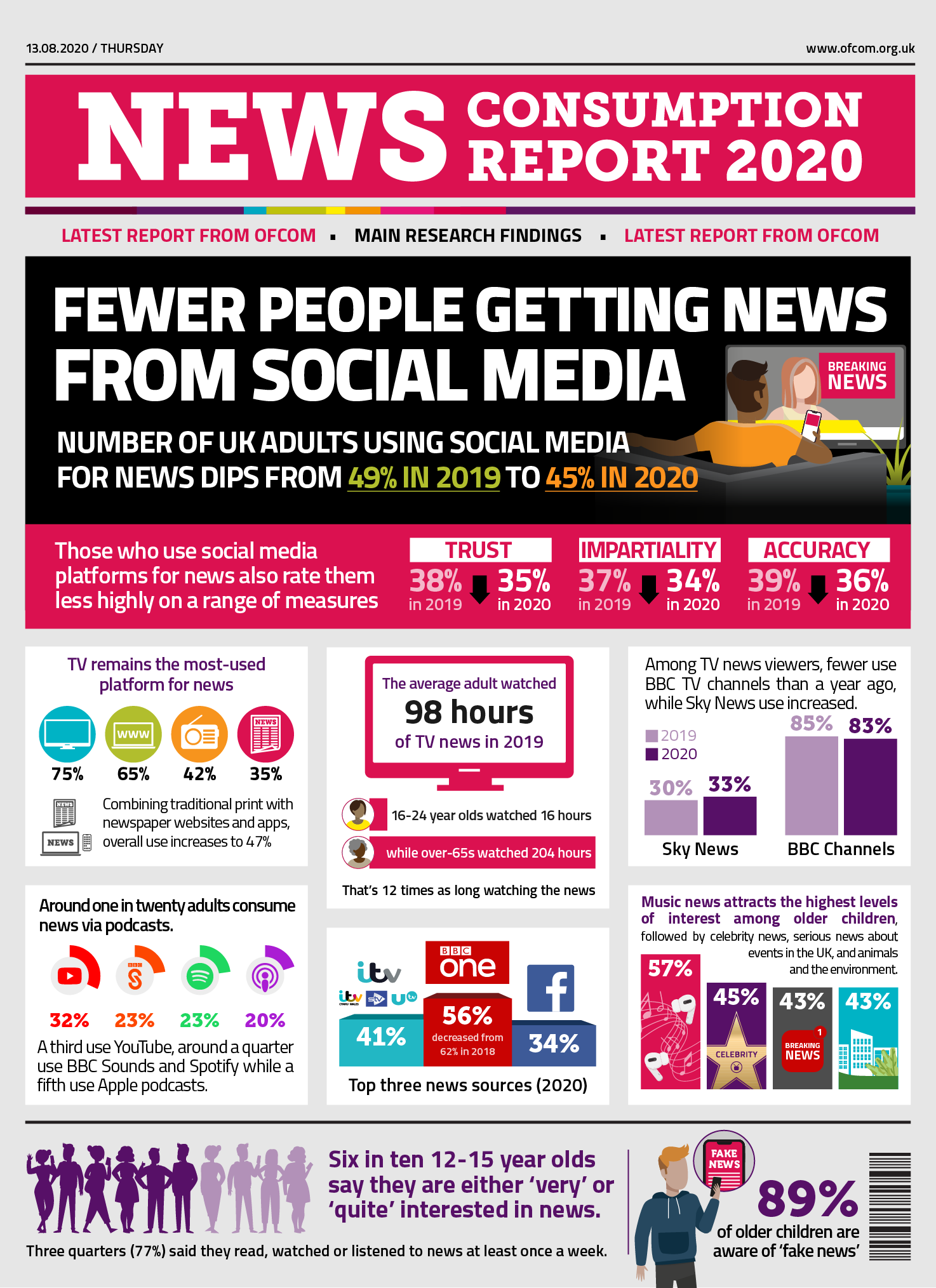Fewer people say they are getting their news from social media than a year ago, according to Ofcom’s annual news consumption report.
While TV remains the most popular way for people to follow the news - used by 75% of people - the proportion using social media to keep up with the latest stories has fallen from 49% in 2019 to 45% in 2020.
Compared to a year ago, people who use social media platforms for news also rate them less favourably on a range of measures including trust (down from 38% to 35%), impartiality (down from 37% to 34%) and accuracy (down from 39% to 36%). People who get their news from Facebook, Instagram and Twitter are also less inclined to share or retweet trending articles or videos than they were last year.
Our study, News consumption in the UK 2019/20, looks at how adults and older children (aged 12 to 15) in the UK consume news across television, radio, print, social media, podcasts, other internet sources and magazines. This report does not explore news consumption during the Covid-19 lockdown; research on this period is available on our website.
Other findings from the research:
- After TV (75%), the internet is the next most popular platform for news (used by 65% of people), followed by radio (42%). Over a third of adults (35%) get news from print newspapers. But, when combining traditional print with newspaper websites and apps, this increases to 47%.
- The average adult watched 98 hours of TV news in 2019 (source: BARB). But there was a big difference by age, with over-65s spending 12 times as long watching news as 16- to 24-year-olds.
- BBC One remains the most popular news source overall (used by 56% of people) followed by ITV (41%) and Facebook (34%).
- Among people who get their news from TV, fewer adults are using BBC channels (83%, down from 85% in 2019), while use of Sky News increased (33%, up from 30%).
- Just over one in 20 adults consume their news via podcasts. Of these, a third use YouTube, around a quarter use BBC Sounds and Spotify, while a fifth use Apple podcasts.
- Six in ten older children aged 12 to 15 say they are interested in news. Three-quarters said they read, watched or listened to news at least once a week.
- Music news attracts the highest levels of interest among older children (57%), followed by celebrity news (45%), news about events in the UK, and animals and the environment (43%).
- Nine in ten older children say they are aware of ‘fake news’, but more than half of those who use social media for news find it difficult to tell whether stories on these platforms are accurate or not.

